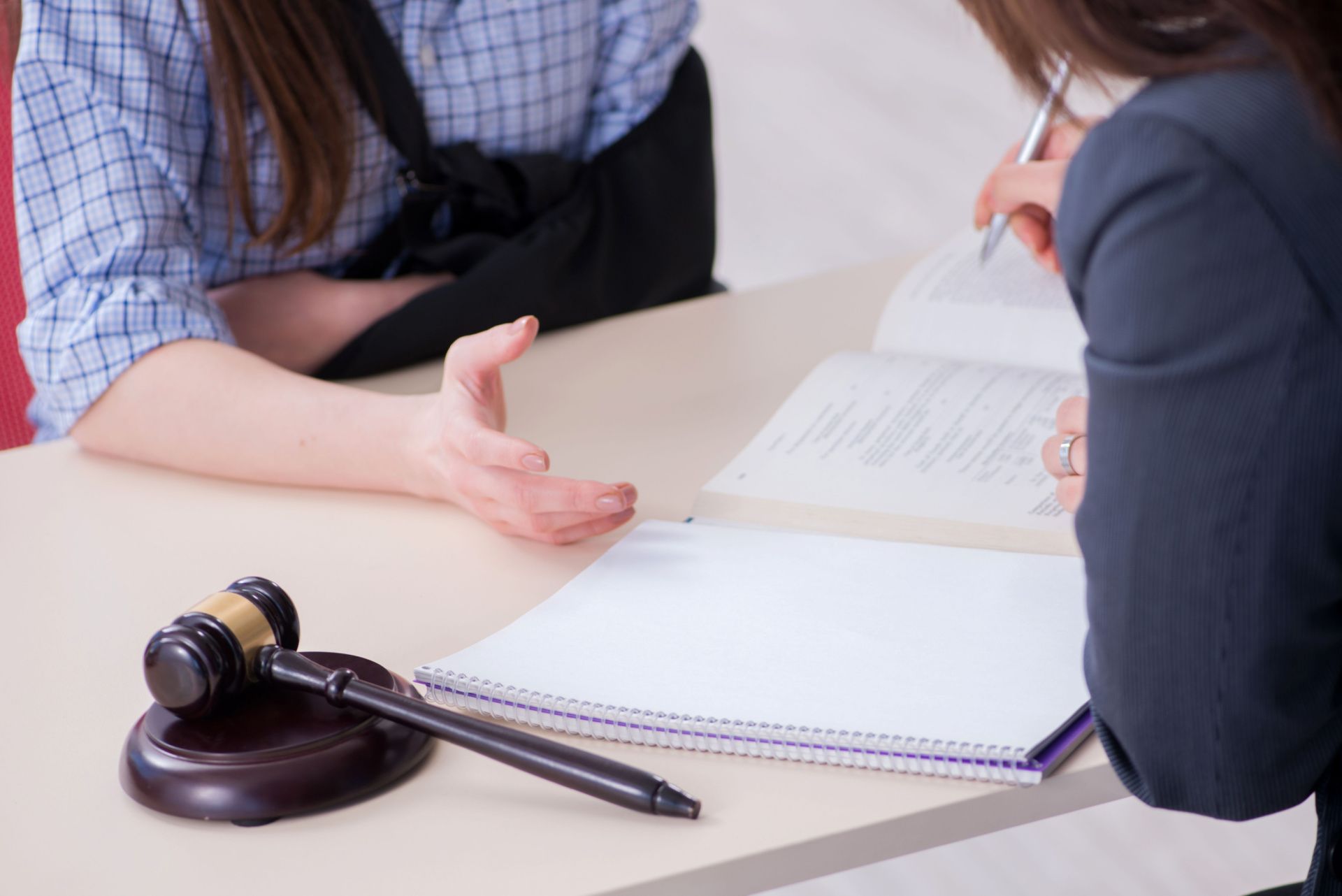Slip And Fall Injuries
"Slip and fall" is a term for personal injury cases which arise when injury is caused when a person slips and falls as a result of a dangerous or hazardous condition on someone else's property. Inside a building, dangerous conditions such as torn carpeting, abrupt changes in flooring, poor lighting, narrow stairs, or a wet floor can cause you to slip and hurt yourself.
Outside a building, you may slip and fall because of rain, ice, snow or a hidden hazard, such as a gap or hard to see pothole in the ground. Slip and fall accidents can occur on commercial, residential or public property. Regardless of where they happen, all property or building owners have a certain level of responsibility (duty of care) to make sure an environment is safe.
Slip and fall accidents are the most common type of "premises liability" cases, which center on the question of a property owner's duty to care for the property. Injury by fire or other accidents resulting from defects in the conditions of buildings also fall under this category.
Slip and fall cases are governed under negligence law. To win a premises liability claim, an injured victim has to prove either that the defendant created the hazard that led to the accident or that the defendant knew or should have known about the danger and had it removed or repaired. This can often be difficult to prove, since proving when a given hazard first appeared can be challenging.
Example: If you slip and fall on a banana in a grocery store, absent some evidence of when the banana first fell onto the floor, it may be difficult to prove that the store "knew or should have known" about the dangerous condition. If the banana fell onto the floor ten seconds before you arrived, then the store most likely could not have known about it. Since Plaintiff's have the burden of proof, proving when the hazard first appeared and that the store should have known about the hazard presents problems in certain cases.
Structural Defects
Structural damages to a building, often due to age or wear and tear, can be a significant cause of injury. Uneven steps, parking lot potholes, cracked sidewalks, broken tiles, or torn carpeting can create dangerous situations for visitors to a building. As noted earlier, to prove negligence, we will have to prove that the property owner knew or should have known about the problem and failed to repair it.
Occasionally, negligence can be proven by violation of a statute. Building owners must ensure that the building's structure is in compliance with applicable building codes. For example, handrails and other similar structures typically must be installed at a certain general height. If you fall on a stairway that lacked appropriate handrails, and the lack thereof caused your injuries, you may have a valid claim against the building owner for violating building codes.
Weather-Related Accidents
Weather-related slip and fall accidents are difficult cases for injured plaintiffs. Landowners are generally expected to take reasonable steps to reduce hazards created by adverse weather. This can include, but is not limited to, shoveling snow, salting or sanding icy and slippery spots, and installing anti-slip devices on outdoor steps. As with other cases, if the landowner has no reasonable opportunity to correct the problem, as where a flash flood has created a hazard, the landowner will not held liable for injuries caused by the hazard.
Comparative Negligence
In slip and fall cases, as with all other negligence claims, comparative negligence applies. As a guest on someone else's property, you are expected to exercise reasonable judgment and caution.
Example: You fall while walking down the stairs at a hotel, sustaining serious injuries. A jury finds that the property owner had been warned about the trouble spot weeks ago and failed to correct it, however, the jury also finds that you were reading the newspaper while you walked down the stairs and your inattention contributed to causing the accident. If the jury finds you 50 percent at fault and the defendant 50 percent at fault, the defendant would have to pay you only one half of the total damages found to be incurred by you.
If you or a loved one has been injured in a slip and fall accident, call us now at (305) 371-7111. Don't delay! You may have a valid claim and be entitled to compensation for your injuries, but a lawsuit must be filed before the statute of limitations expires.

